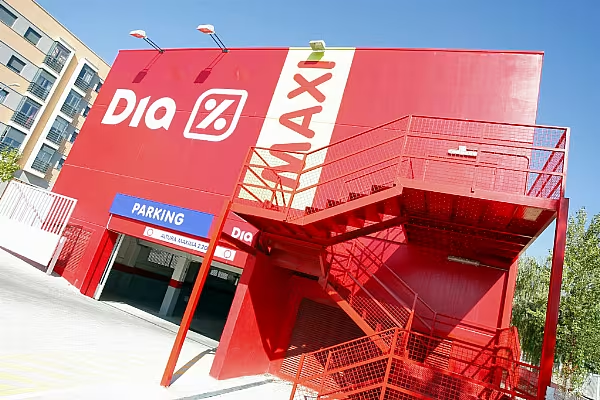Spanish retailer DIA has said that its net loss narrowed to €143 million in the first quarter, from a loss of €151 million a year earlier, helped by lower costs.
The company, which was on the brink of insolvency last year before being rescued by Russian tycoon Mikhail Fridman, said core profit jumped to €61 million, from €17 million in the same period last year, as restructuring costs plunged 92%.
Net sales fell 2.1% to €1.70 billion, confirming the figure stated by the low-cost supermarket chain retailer in April, as the number of open stores declined and it suffered some negative forex impact in Brazil.
Like-for-like sales were up 3%, it added, with underlying pre-COVID-19 growth in Spain and Portugal driven by a business transformation effect.
Panic Buying
The coronavirus pandemic that severely hit Spain, DIA's main market, contributed to an increase in sales, its executive chairman Stephan DuCharme told reporters on Tuesday.
The retailer benefited from a phase of "panic buying" in early March, he said, when consumers rushed to supermarkets to buy items such as pasta, rice and toilet paper.
Later, when one of the world's strictest lockdown was imposed on the country, sales in neighbourhood grocery stores, which account for most of DIA's shops, rose, he said.
"Traffic has increased as customers are shopping for more fresh products such as meat, chicken and vegetables," he said.
The company did not say whether the higher revenue during the pandemic had offset cost increases associated with it, such as bonuses paid to employees and protective gear for them.
Looking Ahead
DIA said it expects net sales of €7.0 billion to €7.5 billion in 2021 and €8.7 billion to €9.3 billion in 2022.
“DIA delivered stable top line performance in the first quarter with like-for-like improvement also continuing into the first months of Q2, showing early positive results of our business transformation plan which is now into its second phase," DuCharme said in the retailer's statement.
"This performance was supported by continued cost discipline and underpinned by a strengthened financial structure with positive cash flow, lower net debt with an enhanced maturity profile and improved trade working capital."













